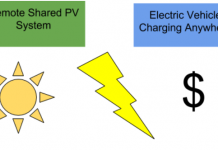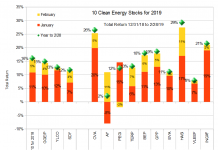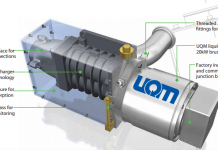by Debra Fiakas CFA
Casting about for alternatives to burning fossil fuels for energy, hydrogen is a logical candidate. It is the most abundant chemical on the planet and the energy density of compressed hydrogen is about 5.6 milli-joules per liter. This compares to 32.4 mj/l for gasoline and 4.3 mj/l for a lithium ion battery. That is where the romance ends and the realities of hydrogen begin. Hydrogen poses a safety risks, particularly in transportation and distribution. Hydrogen gas leaking into the air may spontaneously ignite. Extremely low temperatures will turn it into a liquid, but that represents added cost. Furthermore, the most common production method for hydrogen is steam reformation of natural gas, which hardly represents an alternative to fossil fuels.
Included in our novel renewable energy data base is a very small group of companies attempting to develop technologies to produce hydrogen using an alternative methods not dependent upon fossil fuel. Water molecules are subjected to direct current that leads to a chemical reaction and the separation of the hydrogen and oxygen elements in water. One of the most recent additions to the group Hydrogen Electrolysis in the Mothers of Invention Index is HydroPhi Technologies Group, Inc. (HPTG: Other OTC).
HydroPhi is trying to turn distilled water into a hydrogen-based catalyst for engines using fossil fuels. The catalyst is injected into the air intake of the engine to improve fuel efficiency and thereby reduce greenhouse gas emissions. HydroPhi’s electrolysis system is right on-board the vehicle, thereby avoiding the thorny transportation dilemmas. The company has planned a demonstration project in Poland for heavy duty trucks.
Earlier this week HydroPhi received good news from the European Union’s LIFE Program for environmental protection and water conservation. The program has given preliminary approved a grant for 577,813 Euros or about US$722,000. HydroPhi needs approximately $1.3 million to complete the demonstration. Success with the project should take HydroPhi one step closer to commercialization of its hydrogen fuel catalyst system.
HydroPhi is a very early stage company that is still using cash resources to support development work. In the most recently reported twelve months, the company used $741,250 to support operations. It only had $111,730 on the balance sheet at the end of June 2014, revealing the HydroPhi really needs the money from the grant to carry out the demonstration project in Poland.
HPTG trades for just one penny and the market cap of the company is $1.4 million. Investors interested in the potential in hydrogen could consider the stock as a very inexpensive option on the idea of making it possible for truckers to drive around with their very own hydrogen plant under the hood of their truck. Pay-off is probably a couple years down the road (no pun intended).
Debra Fiakas is the Managing Director of Crystal Equity Research, an alternative research resource on small capitalization companies in selected industries.
Neither the author of the Small Cap Strategist web log, Crystal Equity Research nor its affiliates have a beneficial interest in the companies mentioned herein.








